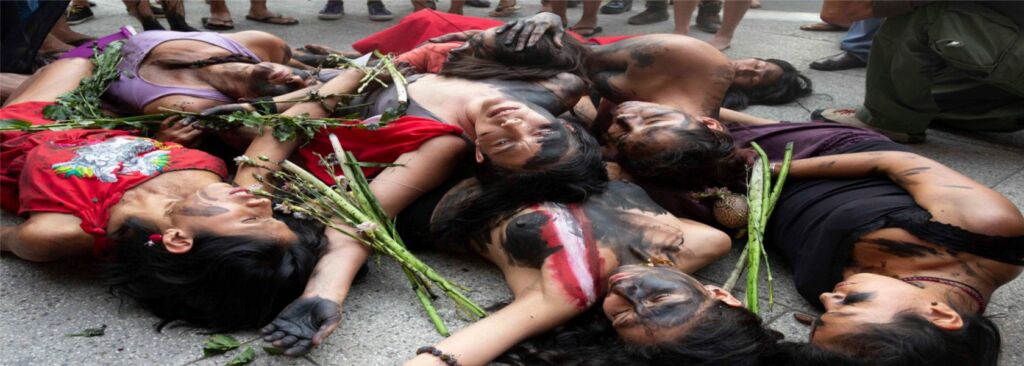“ In recent months, we have witnessed the exacerbation of police abuses against a population that comes out to protest due to the serious institutional crisis, the precarious working conditions, and the defence of the right to life and health. The population is fed up with the priority treatment consistently granted to interests of powerful groups. The needs of the people and the structural problems of the country urgently need addressing, all with utmost respect for human rights ,” said Jorge Bracamonte, Executive Secretary of the CNDDHH.
 The murders of Gonzalo Pío Flores, Arbildo Meléndez Grandez, Santiago Vega Chota, and Roberto Carlos Villanueva Pacheco for denouncing the environmental impact of various extractive companies in their regions are indicative of the level of risk faced by defenders of the land, territory and environment.
The murders of Gonzalo Pío Flores, Arbildo Meléndez Grandez, Santiago Vega Chota, and Roberto Carlos Villanueva Pacheco for denouncing the environmental impact of various extractive companies in their regions are indicative of the level of risk faced by defenders of the land, territory and environment.
“ The report documents how State´s obstinate insistence on the extractive model in Peru has led to not only undermining vulnerable territories, but undermining rights. The next elected authorities have a moral and legal obligation to reverse this trend ,” stated Gerald Staberock, OMCT Secretary General.
The report also highlights the situation of those defending the freedom of expression. An emblematic case is that of Marco Antonio ’Atoq’ Ramón, a photojournalist who lost 70% of the vision in his left eye while covering a demonstration in Lima after a policeman fired a projectile at him. His case is not unique. The repression of freedom of expression is prevalent in Peru, with 239 attacks recorded in 2020, including over 40 during the recent demonstrations that occurred between November 9 and 15, 2020.
The abuse of the criminal process is the most widespread form of attack against defenders in Peru – with 960 cases over the past decade. On January 7, 2021, Jesús Mariano Cornejo Reynoso, an environmental defender, was sentenced to seven years and four months in prison for protesting the environmental damage in his region caused by the Tía María mining project of the Southern Peru company.
“ Peru must effectively address the structural causes of its vulnerability, including by developing a new model to respond to social conflict that avoids the criminalisation of defenders, and includes reforms of the Penal Code and greater guarantees against the abuse of rights by law enforcement ,” declared Gloria Cano, Secretary General of FIDH and Executive Director of APRODEH – Peru.
The report was presented at a panel in the framework of the United Nations Human Rights Council with the participation of Mr. Germán López Ballesteros, Head of the Nueva Austria del Sira Native Community, which is threatened by illegal logging and drug trafficking; Ms. Paola Ugaz, investigative journalist criminalised for her work; a member of the Office of the UN Special Rapporteur on the situation of human rights defenders; Mr. Joel Hernández García, President and Rapporteur on Human Rights Defenders; and Justice Operators at the Inter-American Commission on Human Rights


